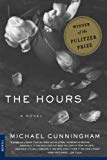
The Hours, a novel, follows a day in the life of three women whose lives are affected by the Virginia Woolf novel Mrs. Dalloway. The first is Woolf herself, dealing with her depression. Another is a 1940s housewife trying to plan her husband's birthday party, and the last is a contemporary lesbian trying to plan a celebration for a friend dying of AIDS. Each has aspects of their life which mirror the Mrs. Dalloway of the text, and the book itself invokes the style and themes of Woolf's classic novel.
Already have an account? Log In Now